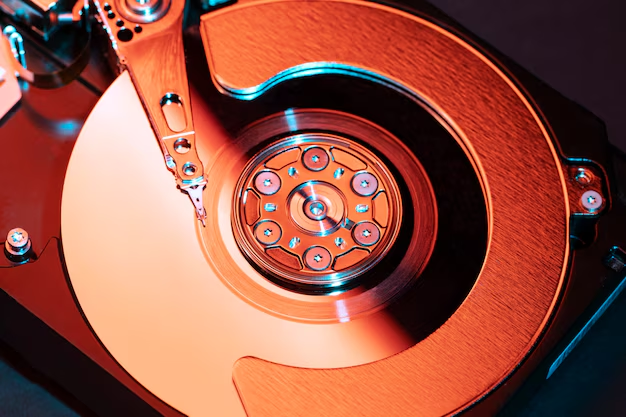Understanding the Role of Copper (Cu) in Refrigerators: A Comprehensive Guide
Have you ever wondered why copper finds a place inside your refrigerator? Beyond just a metallic element on the periodic table, copper (often abbreviated as Cu) plays a crucial and fascinating role in the efficacy and efficiency of modern refrigeration systems. Whether you're a homeowner curious about your appliance’s inner workings, or simply seeking to comprehend why copper is preferred over other materials, this exploration will shed light on its applications and advantages. This guide will unravel the mystery behind copper’s widespread use in refrigerators, providing insights into its benefits, application processes, and future potential in cooling technology.
The Science Behind Copper in Refrigeration
Why Copper? The Basic Chemistry
Copper is a highly conductive metal known for its superior thermal and electrical conductivity. This translates to its ability to efficiently transfer heat and electricity, making it an ideal choice for components within a refrigerator. When it comes to keeping your groceries cool, copper piping and coils facilitate efficient thermal exchange, which is the cornerstone of the refrigeration cycle.
The Refrigeration Cycle: Leveraging Copper
In a refrigerator, the refrigeration cycle involves compression, condensation, expansion, and evaporation.
- Compressor: Copper tubes withstand high pressures without deforming.
- Condenser and Evaporator Coils: These coils, often crafted from copper, ensure that heat is expelled outside while the interior remains cold.
- Expansion Valve: Copper adds precision in controlling the refrigerant flow, ensuring consistent cooling.
Copper is not only durable but also corrosion-resistant, enhancing the appliance’s longevity. This resilience to wear and efficiency in carrying refrigerants secure copper’s position as a staple in refrigeration systems.
Advantages of Copper Use in Refrigerators
Efficiency and Energy Saving
One of the key benefits of using copper in refrigeration is energy efficiency. Homes and businesses prioritize systems that save energy, translating into lower utility bills and reduced environmental impact. Copper’s high thermal conductivity allows for efficient heat exchange, reducing the workload on compressors and promoting energy savings.
Durability and Longevity
Refrigerators are long-term investments and durability is paramount. Copper's robust nature resists corrosion and degradation over time. This means fewer breakdowns and maintenance, contributing to long-lasting appliance performance.
Compact Design and Material Economy
Copper pipes are thinner yet can carry the same amount of refrigerant compared to thicker pipes of other materials. This adaptability allows for compact cooling systems, saving space and resources, making it convenient for manufacturers to design streamlined, efficient refrigerators.
Applications Beyond Refrigeration
HVAC Systems
Much like refrigerators, heating, ventilation, and air conditioning (HVAC) systems benefit from copper’s conductivity. These systems rely on effective heat transfer to regulate indoor climates.
Automotive Cooling Systems
Copper isn’t limited to household appliances. Vehicles use copper in their cooling systems due to its ability to manage heat generated by engines efficiently.
Electronics and Communication
Overall, the versatility of copper extends into electronics, where it assists in heat dissipation, enhancing the performance and longevity of devices.
Future Trends: Innovations and Sustainability
Advances in Copper Alloys
Researchers are continuously working to enhance copper’s natural properties by creating copper alloys with superior characteristics. These innovations could lead to even more efficient cooling solutions, pushing the boundaries of what’s possible in refrigeration.
Sustainability and Recycling
Copper is 100% recyclable, making it a sustainable choice. As environmental consciousness grows, the recyclability and reuse of copper may see increased emphasis in manufacturing processes, aligning with global sustainability goals by reducing waste and energy consumption.
Practical Insights: Maintaining Copper-Built Refrigerators
How can you ensure your copper-inclusive appliance performs its best? Here are a few tips:
- Regular Cleaning: Dust and debris accumulation on copper coils can affect heat exchange efficiency. Routine cleaning bolsters cooling performance.
- Prompt Leak Repairs: Keeping an eye on any refrigerant leaks and addressing them quickly can prevent energy loss and system damage.
- Professional Maintenance: Annual maintenance checks by professionals ensure any wear on copper parts is spotted early, prolonging system life.
Summary Table: Key Benefits and Tips of Using Copper in Refrigerators
| Feature | Benefit | Maintenance Tip |
|---|---|---|
| Copper in Refrigeration | High thermal and electrical conductivity | Regularly clean and check for coil dust |
| Efficiency | Reduces energy consumption and utility bills | Ensure compressor is free of obstructions |
| Durability | Long-lasting and corrosion-resistant material | Schedule periodic professional inspections |
| Compact Design | Allows for sleek and space-saving fridge design | Check for compact pipe fittings and connections |
| Sustainability and Recycling | 100% recyclable compared to other materials | Utilize recycling programs for appliance disposal |
In Conclusion: The Essential Role of Copper in Refrigeration
Copper is a crucial element that enhances the efficiency and performance of refrigeration technology. From its excellent conductivity to durability and sustainability, copper stands out as a pivotal component in ensuring refrigerators run smoothly and effectively. As technology evolves, copper’s role may expand even further, offering intriguing possibilities for more sustainable and efficient cooling solutions in the future. Understanding these dynamics empowers appliance users and enthusiasts to appreciate the science and engineering that chills their food and their home environments.

